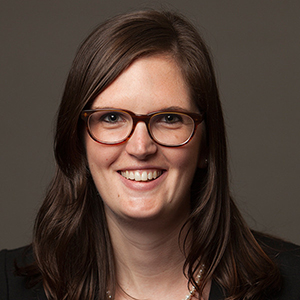A Smooth Transition from the SGE Immersion to Ceres

by Georgia Maloney, MBA ‘16

How the SGE Immersion and Cornell MBA core curriculum provided the foundation for a successful internship assessing corporate sustainability practices.
When I started, I never could have predicted how valuable thetwo weeks of the Sustainable Global Enterprise (SGE) immersion “boot camp” withProfessor Mark Milstein would be. During that time, we got a crash course in,among other things, the history of business and sustainability, emerging issuesand trends, and sustainable business opportunities. Even before beginning myinternship, these topics were all extremely relevant and important as my interviewswere basically an assessment of what I knew about corporate sustainability. Ifound myself wracking my brain to recall everything we had learned in the bootcamp, such as sustainability reporting practices like GRI (Global ReportingInitiative) and SASB (Sustainability Accounting Standards Board). It turns outthat I remembered enough to be offered an internship as a corporate programintern with Ceres.
Ceres is a non-profitorganization advocating for sustainability leadership whose mission is tomobilize investor and business leadership in order to build a thriving,sustainable global economy. One of the most interesting things about Ceres isthat it has a hand in many different aspects of sustainability advocacy, includingwater, policy, insurance, transportation, oil, and gas. The organization alsohas an investor network and a company network.I worked with the company network, known internally as the Corporate Program. TheCorporate Program works with over 65 member companies to help them develop sustainable business strategies that address keychallenges such as climate change, water scarcity, and procurement.
I was drawn to Ceres because I wanted the opportunity to geta very broad view of the corporate sustainability space and to gain exposure toa wide variety of industries, as well as the specific sustainability issuesthat those industries face. Looking back, I definitely made the right choice.Throughout the internship my projects involved research on cosmetics, tech,CPG, apparel, and financial services companies, just to name a few.
When my internship began, it was like the SGE Immersion neverreally ended; instead of being in the classroom I was in the real world settingapplying everything we had learned the past four months. My first task as anintern was to do a complete sustainability performance assessment of one of theorganization’s member companies. Lucky for me, I’d already done this a coupleof times in Professor Glen Dowell’s Strategies for Sustainability class, so Iwas able to quickly dive in. Part of doing a performance assessment is lookingat a company’s financial filings, operations, and supply chain. Therefore, notonly were the skills I gained in the SGE immersion invaluable in my ability tocarry out the duties of my internship, but also the information I learned in mycore classes of finance, accounting, operations and critical thinking werecrucial to my success. This made me realize just how much sustainabilitypermeates all aspects of business and how crucial it is to have a foundation ineach of these areas.
